Three Roads To Quantum Gravity
Three Roads To Quantum Gravity
Three Roads To Quantum Gravity
You also want an ePaper? Increase the reach of your titles
YUMPU automatically turns print PDFs into web optimized ePapers that Google loves.
CHAPTER 8<br />
............................................................................................<br />
AREA AND INFORMATION<br />
At the beginning of the twentieth century, few physicists<br />
believed in atoms. Now there are few educated people who do<br />
not believe in them. But what about space? If we take a bit of<br />
space, say a cube 1 centimetre on each side, we can divide<br />
each side in two to give eight smaller pieces of space. We can<br />
divide each of these again, and so on. With matter there is a<br />
limit to how small we can divide something, for at some point<br />
we are left with individual atoms. Is the same true of space? If<br />
we continue dividing, do we eventually come to a smallest<br />
unit of space, some smallest possible volume? Or can we go<br />
on for ever, dividing space into smaller and smaller bits,<br />
without ever having to stop? All three of the roads I described<br />
in the Prologue favour the same answer to this question: that<br />
there is indeed a smallest unit of space. It is much smaller<br />
than an atom of matter, but nevertheless, as I shall describe in<br />
this chapter and the next three, there are good reasons to<br />
believe that the continuous appearance of space is as much an<br />
illusion as the smooth appearance of matter. When we look on<br />
a small enough scale, we see that space is made of things that<br />
we can count.<br />
Perhaps it is hard to visualize space as something discrete.<br />
After all, why can something not be made to ®t into half the<br />
volume of the smallest unit of space? The answer is that this is<br />
the wrong way to think, for to pose this question is to presume<br />
that space has some absolute existence into which things can<br />
®t. <strong>To</strong> understand what we mean when we say that space is


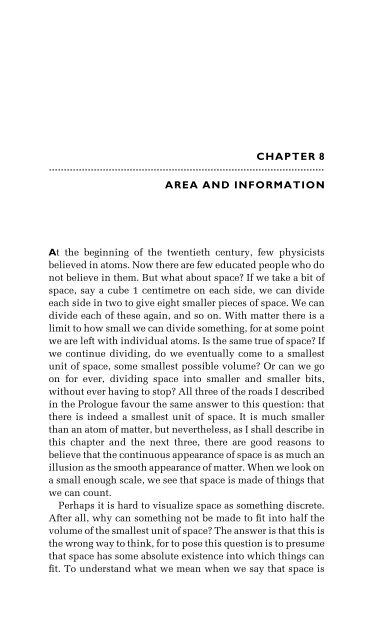
![arXiv:1001.0993v1 [hep-ph] 6 Jan 2010](https://img.yumpu.com/51282177/1/190x245/arxiv10010993v1-hep-ph-6-jan-2010.jpg?quality=85)
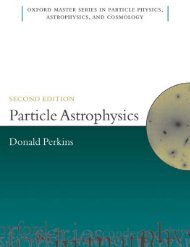
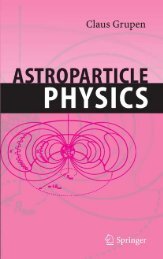
![arXiv:1008.3907v2 [astro-ph.CO] 1 Nov 2011](https://img.yumpu.com/48909562/1/190x245/arxiv10083907v2-astro-phco-1-nov-2011.jpg?quality=85)
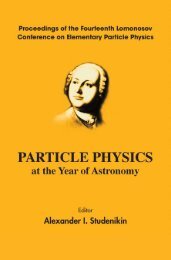
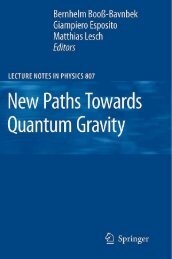
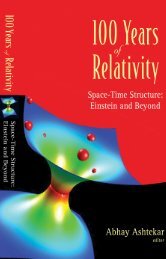

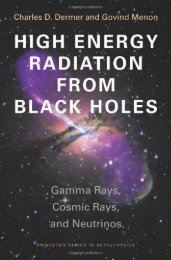
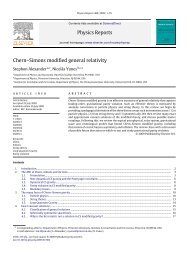
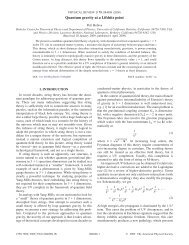

![arXiv:1002.4928v1 [gr-qc] 26 Feb 2010](https://img.yumpu.com/41209516/1/190x245/arxiv10024928v1-gr-qc-26-feb-2010.jpg?quality=85)
![arXiv:1206.2653v1 [astro-ph.CO] 12 Jun 2012](https://img.yumpu.com/39510078/1/190x245/arxiv12062653v1-astro-phco-12-jun-2012.jpg?quality=85)
